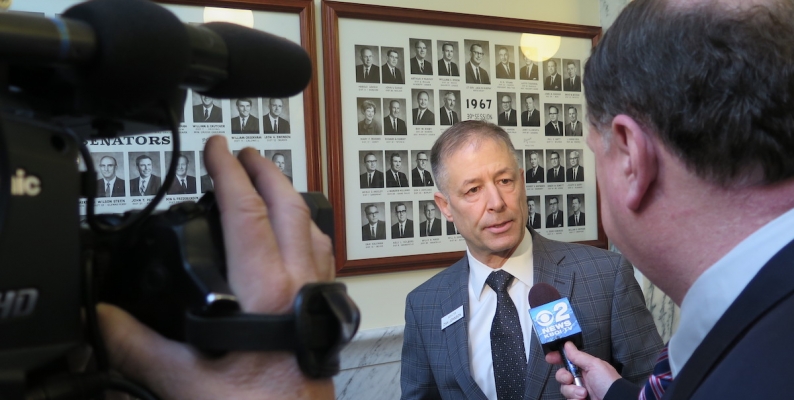By Betsy Russell
It’s been a busy season on the public records front. We have some good news to report, and some things that are still in flux
On the good side: The Idaho media’s joint efforts to fight secrecy and sealing of both documents and proceedings in the St. Alphonsus vs. St. Luke’s anti-trust case were largely successful. Charles Brown, the Lewiston attorney who represented the Idaho Statesman, the Press Club and other Idaho media in the case, said, “When we first made the motions, we did so at a time when the Court was not giving any constitutional analysis toward the closure of the courtroom, nor to the sealing of the exhibits.” Now, he said, the court has made it clear that it embraces its responsibility to apply the constitutional test laid out in a 2002 9th Circuit case from Hawaii and apply a compelling reasons test when it considers those things.
“The analysis rendered in both of the Memorandum Decision and Order are exactly what we had sought,” Brown wrote in a letter to his Idaho media clients in the case.
And HB 90 and HB 91, which together create a new title of Idaho state law called “Transparent and Ethical Government” and in the process make the Idaho Open Meeting Law, the Idaho Public Records Law, and the Idaho Ethics in Government law more high-profile and much easier to find, passed the House on a unanimous, 67-0 vote. The bill still needs Senate passage and the governor’s signature to become law, but the unanimous House vote signals that’s very likely.
The recodification bill doesn’t change anything in any of the three laws; it just makes them easier to find. The public records law is currently under a section of Idaho Code for “evidence,” and the Open Meeting Law is in a “miscellaneous” title. The Ethics in Government law is under “public officers.”
“Putting these statutes under their own title makes these statutes more accessible to the public and officials that must comply with these laws,” Rep. James Holtzclaw, R-Meridian, the House sponsor of the two measures, told the House. “Transparency is crucial for us as lawmakers, to maintain the trust of the people that we serve.”
The two bills – HB 90 creates the new title, and HB 91 makes all the necessary cross-references – were developed by a committee put together by Cally Younger, Gov. Butch Otter’s public records ombudsman. The measures were unanimously endorsed by all members of Younger’s committee, representing the Idaho Attorney General’s office, the Idaho Press Club, the Newspaper Association of Idaho, the Association of Idaho Cities, and the Idaho Association of Counties; representatives of the Idaho Supreme Court also provided input.
On the still-in-flux side, the more substantive piece of legislation that the public records ombudsman’s committee has been working on – to provide some place for citizens to turn when they get a public records request denied, short of having to hire an attorney and sue their own government – was still in the works at press time.
Negotiations have been extensive between the different stakeholders on Younger’s panel. While those of us in the media pushed for a strong administrative appeals process with teeth, that would apply to all levels of government subject to the public records law, and also include a commission that would examine and recommend further improvements in the law, local government interests resisted. Eventually, all sides agreed to start out with an advisory process – the state public records ombudsman could write non-binding advisory opinions and mediate in cases where public records requests are denied, and either the requester or the agency has concerns about the process, at any level of government. The judicial branch would be excluded, and the process would be optional.
Details still are being hashed out, however. And some in the Legislature have raised concerns about a “big-government” expansion of “bureaucracy.” The current ombudsman position, created by the governor through executive order, is an existing staff attorney in the governor’s office; no additional staff is contemplated. It’s unclear at this point what the fate of that legislation will be.
At press time, that bill had cleared the House State Affairs Committee and was awaiting a House vote.
If anyone has concerns about public records or open meetings legislation during this year’s legislative session, please talk with our Press Club First Amendment Committee Chair, Rebecca Boone of the Associated Press, or with me. The First Amendment Committee has been meeting weekly during the session with our pro-bono lobbyist, Julie Hart, to stay on top of these issues, and I applaud the hard work of Becky, Julie, and the entire committee.
Betsy Russell is a Boise-based reporter for The Spokesman-Review, and is president of the Idaho Press Club.

